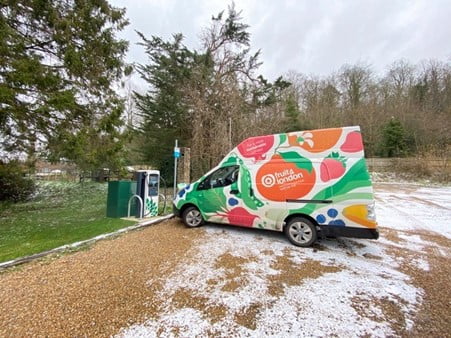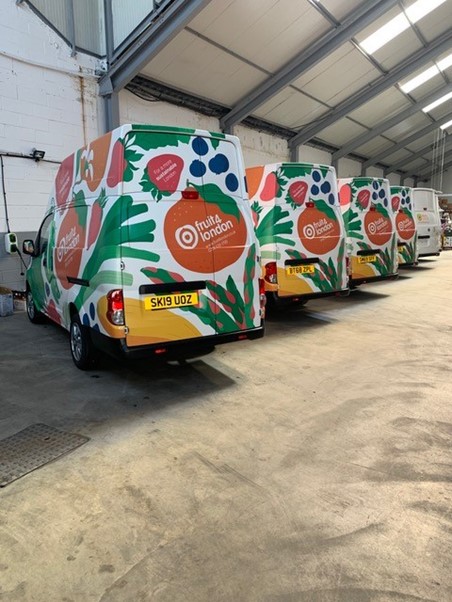Fruit 4 London’s electric van journey started with the purchase of two Renault Kangoo ZEs in 2012 and specifically designing fruit boxes to optimise the space available in the vans.
Nissan approached Fruit 4 London in 2014 to test an eNV200 electric van for eight weeks. Although the company found the eNV200 to be too small for their needs, it did offer a better driving range. Gradually, Fruit 4 London sold their Kangoo fleet and transitioned to a fleet of seven Nissan eNV200 XL models, which are converted with an extension to their cargo space. This provides an improved capacity of 8m3 at a payload of 580kg. Fruit 4 London again redesigned their boxes to fit the maximum number possible in the van.
Another reason for moving away from the Kangoo vans was that while the vehicle was purchased, at the time of ownership, the battery had to be leased. This resulted in complications with insurance following an accident and when reselling the vehicle.
Fruit 4 London sold the first Kangoo van after six years of use and a mileage of 45,000 miles. There were no issues with the vehicles themselves even after six or more years of use, although the range of the vehicle dropped from around 100 to 75 miles.


